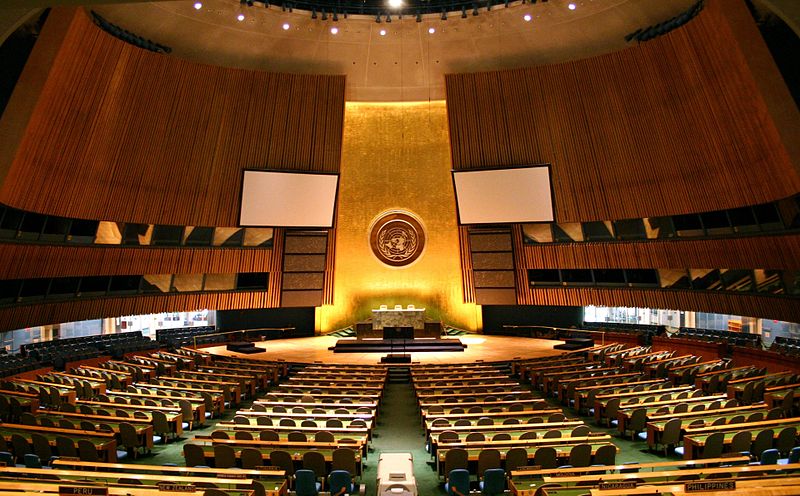General Assembly
The General Assembly is one of the six main organs of the United Nations. The UNGA meets to discuss and work together on a wide array of international issues covered by the Charter of the United Nations, such as development, peace and security, international law, etc.
It is the only UN body with universal representation of all 193 Member States. Every Member State has equal voting powers on UNGA resolutions. Every Member State has equal voting powers on UNGA resolutions. While UNGA resolutions are not legally binding, on occasion they can reflect state practice and eventually evolve into customary international law. The UNGA can also establish priorities, funds, bodies and mechanisms – for instance, the UNGA established the HRC.
Every year in September, all the Members meet in this unique forum at Headquarters in New York for the General Assembly session.
General Assembly Resolutions
The UN General Assembly (UNGA) has passed three resolutions about Tibet, in 1959, 1961 and 1965 respectively, following several appeals by Tibet’s then spiritual and political leader the Dalai Lama. UN member states used the resolutions to challenge China’s claim that Tibet is part of China and to speak out against China’s invasion of Tibet.
1959 UNGA Resolution 1353 (XIV) on Tibet
- Affirms its belief that respect for the principles of the Charter of the United Nations and of the Universal Declaration of Human Rights is essential for the evolution of a peaceful world order based on the rule of law;
- Calls for respect for the fundamental human rights of the Tibetan people and for their distinctive cultural and religious life.
1961 UNGA Resolution 1723 (XVI) on Tibet
- Reaffirms its conviction that respect for the principles of the Charter of the United Nations and of the Universal Declaration of Human Rights is essential for the evolution of a peaceful world order based on the rule of law;
- Solemnly renews its call for the cessation of practices which deprive the Tibetan people of their fundamental human rights and freedoms, including their right to self-determination;
- Expresses the hope that Member States will make all possible efforts, as appropriate, towards achieving the purposes of the present resolution.
1965 UNGA Resolution 2079 (XX) on Tibet
- Deplores the continued violation of the fundamental rights and freedoms of the people of Tibet;
- Reaffirms that the respect for the principles of the Charter of the United Nations and of the Universal Declaration of Human Rights is essential for the evolution of a peaceful world order based on the rule of law;
- Declares its conviction that the violation of human rights and fundamental freedoms in Tibet and the suppression of the distinctive cultural and religious life of its people increase international tension and embitter relations between peoples;
- Solemnly renews its call for the cessation of all practices which deprive the Tibetan people of the human rights and fundamental freedoms which they have always enjoyed;
- Appeals to all States to use their best endeavors to achieve the purposes of the present resolution.
